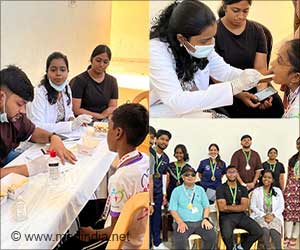Ahmedabad: The Indian Society for Organ Transplantation had its annual meet, ISOT 2006 in Ahmedabad. In a panel discussion, leading transplant surgeons from across the country got together to deliberate on ways to promote cadaveric (or deceased) organ donation and transplantation in the country. With cadaveric organ donation being as low as 0.05 per million population, education of the public and the medical fraternity was highlighted as the answer.
Human-to-human organ transplantation saves and enhances the lives of a number of patients suffering from many forms of end-stage organ failure. Today, transplantation is the leading form of treatment for several debilitating diseases. With this success, however, has come increasing demand for donated organs. Deceased organ donors can donate their organs only after they are declared brain dead. Brain death occurs when the brain is no longer supplied with blood and stops functioning. Without blood, cells in the brain start to die and cannot be replaced. There is no chance of recovery after the brain stops functioning. Ventilating machines in an intensive care unit (ICU) can keep blood flowing to the rest of a brain dead person’s body, thereby maintaining their organs. Depending on age and organ function, deceased organ donors can donate their heart, lungs, pancreas, liver and kidneys.Speaking at the occasion, Dr Sunil Shroff (SRMC and MOHAN Foundation, Chennai) said, “We appreciate the eye donation drive in Gujarat. Donors in Gujarat number between 4000 – 5000 out of the 16000 donations done in the country. The key now lies in focussing on multi-organ retrieval. Furthermore, organs should be treated as a national resource. We need to form a strong Indian network and request Gujarat to join the Indian Network for Organ Sharing facilitated by MOHAN Foundation.”
According to Dr Aarti Vij, (ORBO, New Delhi), “The need of the hour is to increase donors and transplant centres. There are socio-cultural and religious concerns involved, which need to be addressed along with medico-legal issues. If this programme is to kick-off, we need to create a momentum through extensive public awareness and active participation from various fronts. Besides, a very dynamic programme to train, equip and create a network of transplant centres throughout the country is very important. One of the ways to generate awareness is to introduce education about brain death, organ and tissue donation in the school curriculum. Community leaders can play a significant role in encouraging people to come forward.”
Dr Mohammed Rela, liver transplant surgeon from the King's College Hospital, London (UK), said, “One of the major issues facing India today, in promoting cadaveric organ donation is that the medical fraternity has to work as a team. Also, infrastructure in hospitals needs to be improved. Public education and team work is the way forward.”
Source-Medindia








